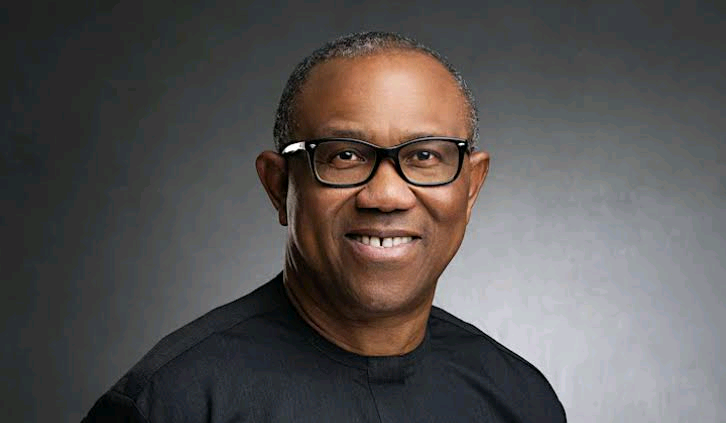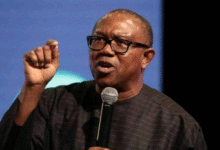Obi Decries Nigeria’s Borrowing Pattern, Says It’s Unsustainable, Mortgaging Future of Children

The 2023 presidential candidate of the Labour Party (LP), Mr. Peter Obi, has expressed dissatisfaction over the continuous borrowing under President Bola Ahmed Tinubu‘s administration, describing the pattern as unsustainable and a threat to the future of Nigerian children.
In a statement released on Tuesday, Obi criticised the growing debt burden, noting that the Nigerian Senate approved an additional $21 billion, €2.2 billion, and ¥15 billion of external borrowing for the 2025–2026 fiscal cycle on July 22, 2025.
“It also approved a ₦750.98 billion domestic bond issuance and a €65 million grant. With an already existing public debt of about ₦149.39 trillion as at the first quarter of 2025, adding the approved loans of about ₦37.2 trillion brings our current total debt to about ₦187 trillion with concerns that our debt might likely be over ₦200 trillion by the end of 2025.
“As our GDP before rebasing was about ₦269.2 trillion (about $180 billion), the government has borrowed the equivalent of nearly 70% of our previous GDP. Even after the rebasing, which pushed our GDP to about ₦372.8 trillion (about $243.7 billion), the government would have borrowed about 50.16 % of the new GDP (with the approved loans), the highest debt-to-GDP ratio in our history as a nation.
“While the year-on-year increase is about ₦27.72 trillion and the quarter-on-quarter increase is about ₦4.72 trillion, we are accumulating very exponential levels of unsustainable debt with little or nothing to show for it in critical areas such as education, healthcare, electricity generation, security of lives and property, and pulling people out of poverty. We still rank low in all major human development indicators. While education is underfunded and standard in continuous decline, healthcare remains inaccessible to millions of Nigerians particularly the poor,” he stated.
The politician also highlighted the deterioration of national security, citing that over 10,217 people were killed and 672 villages were sacked between May 29, 2023, and May 29, 2025, despite security spending significantly increasing from ₦2.98 trillion in 2023 to ₦4.91 trillion in 2025.
He pointed out that infrastructure decay remains widespread, with about 135,000km of Nigeria’s 195,000km of roads still unpaved, largely unmotorable, and unusable. This, he said, is the same depressing situation in almost all sectors of the economy, with the power sector an unquestionable example, with less than 5,000 MW supplied for over 200 million Nigerians.
“Today, over two years after the present government took over and with all the humongous borrowing, we are still confronted with negative reports of worsening poverty with about 133 million (63%) Nigerians classified as multi-dimensionally poor, increasing unemployment, and disheartening news like 652 children dead as the malnutrition crisis worsens in Northern Nigeria.
“Médecins Sans Frontières (MSF), also known as Doctors Without Borders, has just sounded the alarm over an escalating malnutrition crisis in Northern Nigeria, with Katsina State emerging as one of the worst-hit areas. This is a country blessed with enormous resources, yet nobody should go to bed hungry. Still, a persistent deficiency in leadership has thrown the majority of our citizens into increasing multi-dimensional poverty.”
Obi explained that borrowing is not inherently bad — if it is sustainable and tied to productive investments with measurable outcomes. “Unfortunately, this current pattern of borrowing without accountability, without transparency, and without transformational impact is simply mortgaging the future of our children.
“The government should consider the inter-generational consequences of their unsustainable borrowings and show at least a minimum consideration and interest in future of young and unborn Nigerians.”
The former Anambra State Governor called for a return to disciplined and prudent economic management culture, including cutting the cost of governance, blocking revenue leakages, investing in human capital, and building a productive economy.
Obi reiterated that Nigeria cannot afford to continue borrowing recklessly while poverty deepens and public trust erodes, advising that it is time to stop this fiscal indiscipline.
“We must build a New Nigeria, where leadership is responsible, development is people-centred, and every kobo borrowed or spent delivers a measurable impact to achieve sustainable and inclusive development and growth,” he added.







